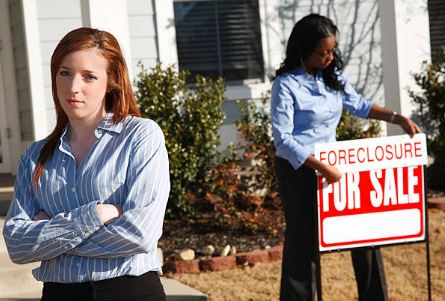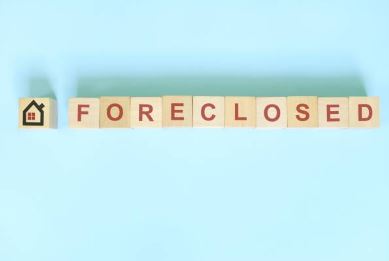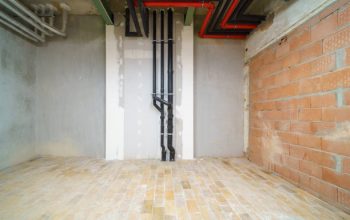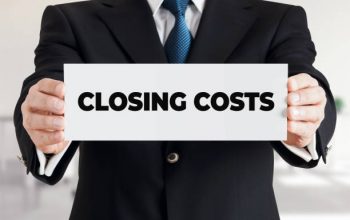Investing in a foreclosed property can be a great way to get a high return. The decision to buy a foreclosed property is a risk. What makes buying a foreclosed property risky? Is it possible to lessen them? And given these dangers, is it wise to purchase a home in foreclosure? In this article, we’ll examine the factors that make investing in foreclosed property risky and give you some easy strategies for lowering that risk.
Table of Contents
What are the Types of Foreclosed Property?
The three most common types of foreclosed property in the US are:
- Power of sale foreclosure
- Judicial foreclosure
- Strict foreclosure
Some states require the mortgage contract to include a power of sale clause in order to proceed with a power of sale foreclosure, also known as a statutory foreclosure. This enables the lender to sell the property at auction to complete the foreclosure. This does not require any judicial involvement and is allowed in a total of 29 states.
In order to start the foreclosed property process in a judicial foreclosure, the lender must file a lawsuit. The buyer is informed and typically given 30 days to catch up on the loan after that. If that doesn’t work, the county sheriff or a judge will then hold an auction to sell the property.
Only in Vermont and Connecticut are strict foreclosures permitted, and they demand that the lender file a lawsuit against the defaulted borrower. The mortgage payment deadline is then set by the court, and if it is missed, the title to the property automatically passes to the lender.
This is the only kind of foreclosure that doesn’t call for a formal sale.
What Happens During the Foreclosed Property?
When a current homeowner misses a payment on their mortgage, the foreclosed property takes place. The mortgage lender will eventually try to reclaim the home and sell it at an open auction if you consistently fall behind on your mortgage payments.
The house turns into a real estate-owned (REO) property after the foreclosure auction if nobody bids on it, at which point the bank reclaims ownership. The bank’s main objective at this point is to recoup its losses from the mortgage default, so it’s common for them to list the house for sale at a significant discount to its estimated market value.
What are the Risks of Buying Foreclosed Property?
You should be aware of the risks involved when purchasing a foreclosed property as they exist with any investment.
Overpaying is Easy
Paying more than the home’s current market value is a common risk when purchasing a foreclosed property. This risk can be exacerbated if you are buying at an auction, where competing buyers may “spite bid” to drive the price higher.
You can lower this risk considerably by setting a maximum bid at an auction, or setting a firm budget for yourself when buying off-market
You May Need Cash
If you want to buy a foreclosed property, financing may be nearly impossible, especially if you want to use conventional financing or an FHA loan.
Although they can take a lot longer and can make a flip unprofitable, you might be able to find a rehab loan with reasonable terms. Nevertheless, there are options for these kinds of circumstances with some lenders.
Your ROI Can Take An Unexpected Hit
Many beginners are unaware of the possible costs or supplementary expenses connected with purchasing a foreclosed property.
The majority of people will be ready for the cost of the property and a typical title fee, but there might also be additional expenses. There might be transfer taxes or liens on the property, and you might even have to pay fees from the initial foreclosure.
Your Rental Plan Can Be Delayed
There is a chance that the process of purchasing a foreclosure will take longer than expected.
Particularly during the escrow phase at closing, foreclosure sales are known to take longer than regular sales to complete. Making sure you’re working with a seasoned broker or real estate agent is one way to reduce these delays.
Your agent should be knowledgeable about both the financial institution handling the transaction as well as foreclosure sales.
As-Is Sales Can Be Nebulous
Because the sellers are not required by law to disclose significant flaws, there is a significant risk when purchasing a foreclosed property.
In general, the homes are sold “as is,” which means the buyer is fully responsible for conducting all due diligence and is required to hire a licensed inspector.
It’s always a good idea to have a cash reserve set aside in case the property requires significant repairs or even expensive expenses like foundation or roofing work.

What is a Common Problem With a Foreclosed Property Purchase?
Contrary to a typical home purchase, purchasing a foreclosed property can take a very long time. The fact that a private individual no longer owns the house is one of the reasons why foreclosure property sales take longer to close. Instead, the home becomes a bank-owned asset, and the mortgage lender will decide whether to move forward with the sale or wait for more favorable terms. It might take months or even a year for banks to come to an agreement because they have the financial means to wait for the best offer.
For those looking to buy a foreclosure property as their primary residence, the drawn-out foreclosure sale procedure may be a problem. Many would-be buyers look for foreclosed homes that haven’t been put up for public auction to avoid delays. Before the home goes into foreclosure, mortgage lenders will occasionally permit the current owner to sell the property for less than they owe. This is known as a short sale.
What are the Benefits of Buying Foreclosed Property?
The main advantage of foreclosed property is that, under the right conditions, you can frequently pay much less than market value.
Although they might not necessarily be listed for less than comparable homes in the neighborhood, the lender sets the price because they want to sell the house and get it off their books.
Can You Get a Mortgage to Buy a Foreclosed Property?
It happens frequently that a buyer can get a mortgage to buy a foreclosed property. Foreclosed or rehabbed property loans are even a specialty of many lenders.
Depending on the lender, the loan’s conditions may differ. Some may demand that the house is in livable condition, while others won’t.
In order to increase your chances of the seller accepting your offer, you might want to apply for a mortgage in advance before you start looking at properties.
What are the Tips for Avoiding the Risks of a Foreclosed Property?
Purchasing a home is a major decision regardless of the market, but with a foreclosed property, the buyer bears the majority of the risk. There are many drawbacks to buying foreclosures, but there are a number of ways to guard against falling victim to a bad deal. The time, money, and effort you invest in your next foreclosure property purchase will be worthwhile if you follow this straightforward advice.
Find the Right Agent
Your first move should be to look for a real estate agent who can walk you through the process before purchasing any foreclosed property. Use an online agent finder to reduce your options to the most qualified applicant if you’re unsure of where to begin. Their experience and knowledge will be of great assistance in locating a foreclosed property free of liens or other legal problems that might prolong the purchasing process for months.
Do Some Research
Before making any decisions, learn as much as you can about the foreclosure property. Look closely at the home’s curb appeal and any available photos for any glaring indications of neglect. If you are familiar with the area where the property is located, take a drive through it to get a feel for the surrounding homes and neighborhood. A foreclosure’s price should be compared to other nearby homes’ prices. By doing this, you’ll have a better idea of the home’s actual value and the potential return on your investment.
Don’t Get Emotional
When emotions are high, which often happens when people are buying a new home, mistakes are inevitable. Despite the fact that foreclosed homes can occasionally sell very quickly, it is best to keep your cool, be patient, and remain collected while looking. Keep in mind that finding a great deal is the main objective and that not all foreclosed homes are worthwhile investing time, effort, or money into. It might be wiser to look elsewhere if a house you want is out of your price range and the bank won’t negotiate the price.
Conclusion
Once you have a firm understanding of every step in the procedure, finding foreclosed property for sale and purchasing it becomes fairly straightforward. You ought to think about hiring a knowledgeable real estate agent and rely on cutting-edge resources when looking for foreclosed property.



